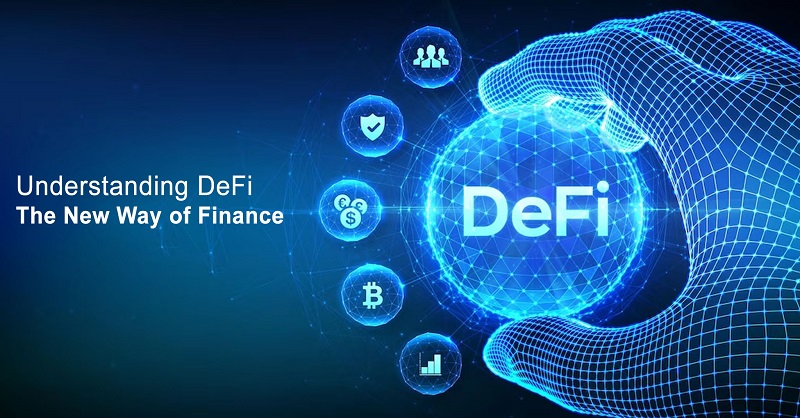
© themes-park | All Rights Reserved

Decentralized Finance (DeFi) is transforming the global financial landscape by eliminating traditional intermediaries like banks and brokers. Powered by blockchain technology and smart contracts, DeFi enables users to access financial services such as lending, borrowing, trading, and staking without relying on centralized institutions.
DeFi operates on blockchain networks, primarily Ethereum, through decentralized applications (DApps). These DApps utilize smart contracts to automate and execute financial transactions securely and transparently. Unlike traditional finance, DeFi provides users with complete control over their assets, ensuring greater security and financial independence.
Decentralization - No central authority controls DeFi platforms, reducing the risk of censorship and fraud.
Transparency - All transactions are recorded on public blockchains, enhancing security and trust.
Accessibility - Anyone with an internet connection can access DeFi services, making finance more inclusive.
Programmability - Smart contracts automate complex financial operations efficiently.
Interoperability - DeFi protocols can integrate with each other, creating a seamless financial ecosystem.
Decentralized Exchanges (DEXs) - Platforms like Uniswap and SushiSwap enable peer-to-peer cryptocurrency trading without intermediaries.
Lending and Borrowing - Protocols such as Aave and Compound allow users to lend assets and earn interest or borrow without credit checks.
Yield Farming & Staking - Users can lock their crypto assets in liquidity pools to earn rewards and interest.
Stablecoins - Cryptocurrencies like DAI and USDC offer price stability while leveraging blockchain benefits.
Insurance - DeFi insurance platforms like Nexus Mutual provide coverage against smart contract failures and hacks.
Decentralized Finance (DeFi) transforms financial services by eliminating intermediaries and reducing costs. It allows users to transact directly through smart contracts, ensuring efficiency and control. DeFi also promotes financial inclusion by providing access to banking services without requiring a traditional account. Additionally, it offers higher returns through staking and yield farming. With its accessibility, affordability, and profitability, DeFi is shaping the future of finance.
While DeFi offers numerous benefits, it also comes with risks. Smart contract vulnerabilities can lead to financial losses due to bugs or exploits. Regulatory uncertainty remains a concern as governments continue to define DeFi regulations. Scams and frauds are prevalent, requiring users to research projects before investing. Additionally, liquidity risks can affect trade execution on certain platforms. Understanding these risks is essential for safe participation in DeFi.
The DeFi sector is continuously evolving, with innovations like Layer 2 scaling solutions and cross-chain interoperability enhancing efficiency. As adoption grows, DeFi has the potential to redefine traditional finance, making it more inclusive, efficient, and secure.
© themes-park | All Rights Reserved